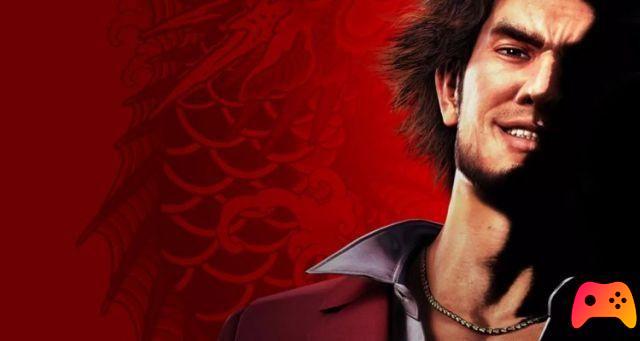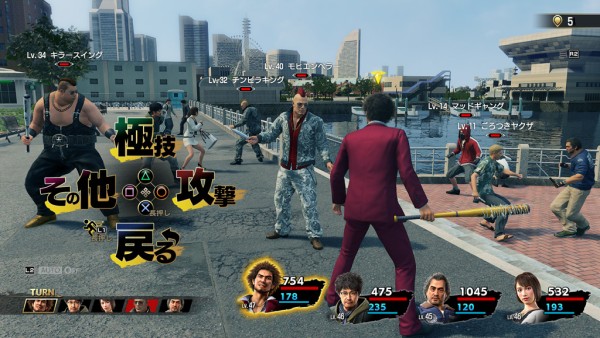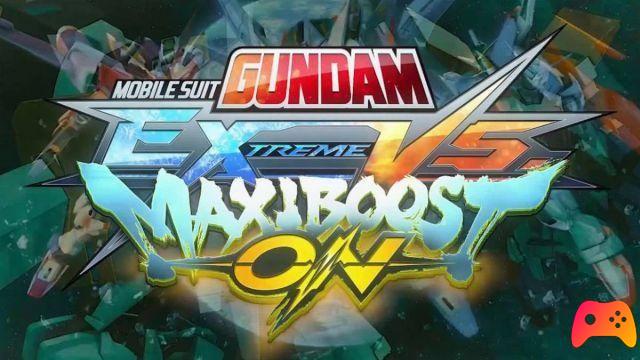In light of the growing success of the Yakuza series, Ryu Ga Gotoku Studio has created a lot of anticipation for the announcement of the seventh installment of the series. A little because it would have represented a new beginning in the story, which is thus detached from Kiryu and company, a little to take advantage of the positive moment of the series and of the studio itself, which has joined its main IP also successful spin-offs such as Judgment or Fist of the North Star.
Finally, the official announcement arrives, Yakuza 7 Whereabouts of Light and Dark is a reality in Japan, and will also come to us with the modified title Yakuza 7: Like A Dragon.

However, the announcement did not provoke the classic excitement that RGG studio usually maintains, but instead brought about a distinct division of the fanbase. The reason is simple, but crucial: the combat system, flagship of the series together with its narration, will be completely replaced.
Yakuza 7 in fact will not be a beat'em up like the previous ones, but rather a JRPG with standard turn-based combat. So let's discuss what we have seen, and whether Nagoshi's choice is acceptable or not.

Yakuza 7, as previously mentioned, is a title that marks a new birth for the series. Kazuma Kiryu's story has come to an end, and now the stage is decked out to accommodate Ichiban's adventures. To discuss gender change, it is important to take into account an often overlooked element of the SEGA series. In the Yakuza, interactions with the world are directly linked to the character of the protagonists. It is not possible to attack innocent people on the street because Kiryu would never do it, just as all the hobbies available are such because they are in the interests of the protagonist. This element is central to the structure of the games of RGG studio, in fact the same developers have presented the change of genre as a way to represent the new protagonist.
If the protagonist changes, so does the gameplay. This is a new Yakuza experience!
Although the temporary abandonment of the beat'em up can be counterproductive in terms of sales; the studio is undoubtedly building a very promising gameplay structure. From the short videos available so far, you can see how there are "Persona" influences in the management of the UI, which seem immediate and comfortable, despite not having a particularly impactful aesthetic. The combat itself seems very particular, there are many mechanics of interaction between the characters, which can chain combos, and with the environment. The animations are fluid and spectacular, contributing to the sense of spectacle for which the series has become famous, especially in the last few chapters. It must be admitted, that there are not only lights, the fights, due to the very long and detailed animations, seem really slow; which can aggravate the situation of the game in the eyes of fans who do not support the transition to the turn-based system.

The gameplay collides with the narrative thanks to Ichiban's passion for the Dragon Quest saga, directly mentioned in the video teaser and clearly honored in the gameplay published as "April Fool" (which turned out to be true) with the scene in which Ichiban mimics the trailer for Dragon Quest XI. Also from the musical point of view there are strong influences from Dragon Quest, with times reminiscent of the 8-bit era. The potential for an excellent JRPG is present, but we must wait for more information to draw the necessary conclusions. For now, the only big flaw is the lack of an accelerator for the battles, which, however, is not certain cannot be implemented in the last months of development.
We remain optimistic about the title also, and above all, for what the narrative teaser has shown about the plot and the character of Ichiban. After 18 years in prison, in a dynamic that closely resembles Kazuma Kiryu's early adventures, Ichiban finds himself in a Kamurocho he doesn't recognize.
The Tojo clan has fallen, and all Ichiban's connection to the neighborhood has disappeared. The same boss he sacrificed 18 years for, betrays him by shooting him on sight. The new protagonist will then have to start from the bottom, in a city unknown to him (and new setting of the game) Ichinjo in Yokohama. The basic concept is great for a title that must act as a bridge between the "old" and "new" world of Yakuza. In fact, we have a scenario that keeps the curiosity of old fans, eager to understand what happened to the beloved Tojo clan, but allows anyone to know the series starting from Yakuza 7, thanks to a new protagonist, a new city and a path of growth to be developed.

Ultimately we still don't feel ready to judge Yakuza 7's courageous choices from a gameplay point of view; but beyond the comparisons with the other titles, the game promises to be very interesting, and after years and years of success, we want to believe in Ryu Ga Gotoku Studio and Nagoshi. In the best case, we could have in our hands an exceptional title with unknown potential that probably will not lead to the abandonment of the beat'em up, which can continue on the Judgment series, at worst, the team has already clarified that in the case of a flop, the next chapter will return to adopt the classic Yakuza formula.






